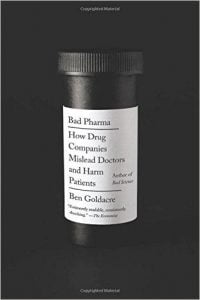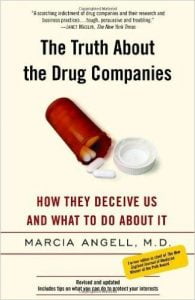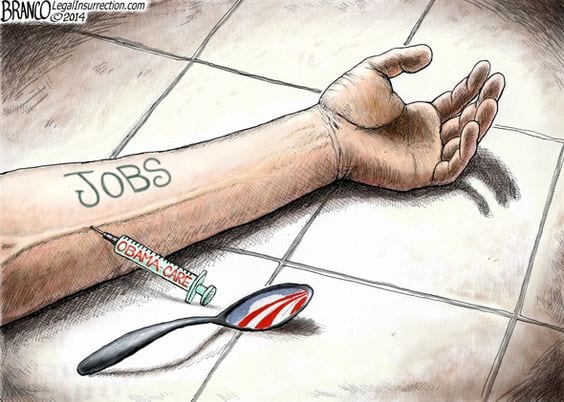The US Supreme Court made a ruling on lawsuits against drug companies for fraud, mislabeling, side effects and accidental death. From now on, 80 percent of all drugs are exempt from legal liability. Drug companies failed to warn patients that toxic epidermal necrolysis was a side effect. But the Supreme Court ruled they’re still not liable for damages. In a 5-4 vote, the US Supreme Court struck down a lower court’s ruling and award for the victim of a pharmaceutical drug’s adverse reaction. According to the victim and the state courts, the drug caused a flesh-eating side effect that left the patient permanently disfigured over most of her body. The adverse reaction was hidden by the drug maker and later forced to be included on all warning labels. But the highest court in the land ruled that the victim had no legal grounds to sue the corporation because its drugs are exempt from lawsuits.
Karen Bartlett vs. Mutual Pharmaceutical Company
In 2004, Karen Bartlett was prescribed the generic anti-inflammatory drug Sulindac, manufactured by Mutual Pharmaceutical, for her sore shoulder. Three weeks after taking the drug, Bartlett began suffering from a disease called, ‘toxic epidermal necrolysis’. The condition is extremely painful and causes the victim’s skin to peel off, exposing raw flesh in the same manner as a third degree burn victim.
Karen Bartlett sued Mutual Pharma in New Hampshire state court, arguing that the drug company included no warning about the possible side effect. A court agreed and awarded her $21 million. The FDA went on to force both Mutual, as well as the original drug manufacturer Merck & Co., to include the side effect on the two drugs’ warning labels going forward.
Now, nine years after the tragedy began, the US Supreme Court overturned the state court’s verdict and award. Justices cited the fact that all generic drugs and their manufacturers, some 80% of all drugs consumed in the United States, are exempt from liability for side effects, mislabeling or virtually any other negative reactions caused by their drugs. In short, the Court ruled that the FDA has ultimate authority over pharmaceuticals in the US. And if the FDA says a drug is safe, that takes precedent over actual facts, real victims and any and all adverse reactions.
Court ruling
The Court’s ruling a week ago on behalf of generic drug makers is actually a continuation of a ruling made by the same Court in 2011. At that time, the Justices ruled that the original inventors and manufacturers of pharmaceutical drugs, also known as ‘name brand’ drugs, are the only ones that can be sued for mislabeling, fraud or adverse drug reactions and side effects. If the generic versions of the drugs are made from the exact same formula and labeled with the exact same warnings as their brand name counterparts, the generics and their manufacturers were not liable.
The Court ruled, “Because it is impossible for Mutual and other similarly situated manufacturers to comply with both state and federal law, New Hampshire’s warning-based design-defect cause of action is pre-empted with respect to FDA-approved drugs sold in interstate commerce.”
And that ruling flies in the face of both common sense and justice. And as Karen Bartlett can now attest, it leaves 240 million Americans unprotected from the deadly and torturous side effects of pharmaceutical drugs. As a reminder, the number one cause of preventable or accidental death in the US is pharmaceutical drugs.
Critics react
Immediately upon the Supreme Court’s ruling, both drug manufacturers and Wall Street investors were celebrating. As one financial analyst pointed out, drug company profits should skyrocket going forward. Not only do the pharmaceutical companies no longer have to worry about safety or side effects, they are exempt from the multi-million dollar court-imposed settlements awarded to victims of their drugs.
One industry critic was quoted by Reuters after the verdict. “Today’s court decision provides a disincentive for generic makers of drugs to monitor safety of their products and to make sure that they have a surveillance system in place to detect adverse events that pose a threat to patients,” Michael Carome, director of Public Citizen’s Health Research Group told the news outlet.
Senate Judiciary Committee Chairman Patrick Leahy (D-VT) was quick to react to the ruling by writing a stern letter to FDA Commissioner Margaret Hamburg, “A consumer should not have her rights foreclosed simply because she takes the generic version of a prescription drug.”
But an attorney for the drug companies, Jay P. Lefkowitz, took the opposing position saying, “It makes much more sense to rely on the judgments of the scientific and medical experts at the FDA, who look at drug issues for the nation at large, than those of a single state court jury that only has in front of it the terribly unfortunate circumstances of an adverse drug reaction.”
In other words, if the FDA says something is safe, it doesn’t matter if that decision is wrong or the result of lies, fraud or deception on the part of the world’s pharmaceutical companies. And there’s no way to sue the FDA for being wrong and costing millions of unsuspecting Americans their lives. That result leaves 240 million Americans unprotected from an industry responsible for more preventable deaths in the US than any other cause.
Recommended Books:
 We like to imagine that medicine is based on evidence and the results of fair testing and clinical trials. In reality, those tests and trials are often profoundly flawed. We like to imagine that doctors who write prescriptions for everything from antidepressants to cancer drugs to heart medication are familiar with the research literature about these drugs, when in reality much of the research is hidden from them by drug companies. We like to imagine that doctors are impartially educated, when in reality much of their education is funded by the pharmaceutical industry. We like to imagine that regulators have some code of ethics and let only effective drugs onto the market, when in reality they approve useless drugs, with data on side effects casually withheld from doctors and patients.
We like to imagine that medicine is based on evidence and the results of fair testing and clinical trials. In reality, those tests and trials are often profoundly flawed. We like to imagine that doctors who write prescriptions for everything from antidepressants to cancer drugs to heart medication are familiar with the research literature about these drugs, when in reality much of the research is hidden from them by drug companies. We like to imagine that doctors are impartially educated, when in reality much of their education is funded by the pharmaceutical industry. We like to imagine that regulators have some code of ethics and let only effective drugs onto the market, when in reality they approve useless drugs, with data on side effects casually withheld from doctors and patients.
All these problems have been shielded from public scrutiny because they are too complex to capture in a sound bite. Ben Goldacre shows that the true scale of this murderous disaster fully reveals itself only when the details are untangled. He believes we should all be able to understand precisely how data manipulation works and how research misconduct in the medical industry affects us on a global scale.
With Goldacre’s characteristic flair and a forensic attention to detail, Bad Pharma reveals a shockingly broken system in need of regulation. This is the pharmaceutical industry as it has never been seen before.
 During her two decades at The New England Journal of Medicine, Dr. Marcia Angell had a front-row seat on the appalling spectacle of the pharmaceutical industry. She watched drug companies stray from their original mission of discovering and manufacturing useful drugs and instead become vast marketing machines with unprecedented control over their own fortunes. She saw them gain nearly limitless influence over medical research, education, and how doctors do their jobs. She sympathized as the American public, particularly the elderly, struggled and increasingly failed to meet spiraling prescription drug prices. Now, in this bold, hard-hitting new book, Dr. Angell exposes the shocking truth of what the pharmaceutical industry has become–and argues for essential, long-overdue change.
During her two decades at The New England Journal of Medicine, Dr. Marcia Angell had a front-row seat on the appalling spectacle of the pharmaceutical industry. She watched drug companies stray from their original mission of discovering and manufacturing useful drugs and instead become vast marketing machines with unprecedented control over their own fortunes. She saw them gain nearly limitless influence over medical research, education, and how doctors do their jobs. She sympathized as the American public, particularly the elderly, struggled and increasingly failed to meet spiraling prescription drug prices. Now, in this bold, hard-hitting new book, Dr. Angell exposes the shocking truth of what the pharmaceutical industry has become–and argues for essential, long-overdue change.
Currently Americans spend a staggering $200 billion each year on prescription drugs. As Dr. Angell powerfully demonstrates, claims that high drug prices are necessary to fund research and development are unfounded: The truth is that drug companies funnel the bulk of their resources into the marketing of products of dubious benefit. Meanwhile, as profits soar, the companies brazenly use their wealth and power to push their agenda through Congress, the FDA, and academic medical centers.
Zeroing in on hugely successful drugs like AZT (the first drug to treat HIV/AIDS), Taxol (the best-selling cancer drug in history), and the blockbuster allergy drug Claritin, Dr. Angell demonstrates exactly how new products are brought to market. Drug companies, she shows, routinely rely on publicly funded institutions for their basic research; they rig clinical trials to make their products look better than they are; and they use their legions of lawyers to stretch out government-granted exclusive marketing rights for years. They also flood the market with copycat drugs that cost a lot more than the drugs they mimic but are no more effective.
The American pharmaceutical industry needs to be saved, mainly from itself, and Dr. Angell proposes a program of vital reforms, which includes restoring impartiality to clinical research and severing the ties between drug companies and medical education. Written with fierce passion and substantiated with in-depth research, The Truth About the Drug Companies is a searing indictment of an industry that has spun out of control.



